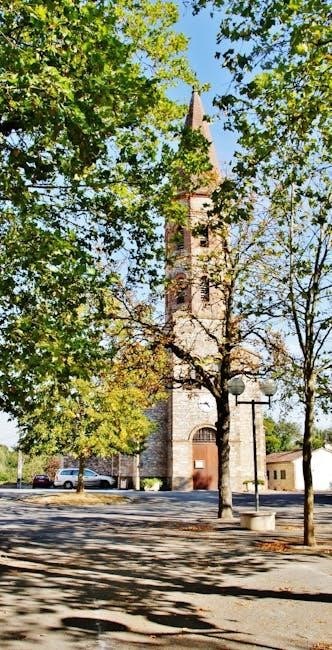
The Catholic Church openly acknowledges altering the Sabbath from Saturday to Sunday, a significant shift in Christian worship traditions. This change, documented in historical records and official Church publications like The Catholic Record and the Catechism of the Catholic Church, reflects the Church’s authority in shaping religious practices. The transition underscores the Church’s influence in establishing Sunday as the “Lord’s Day,” replacing the seventh-day Sabbath observed in Judaism. This shift has profound implications for Christian history and worship practices, highlighting the Church’s role in adapting divine commandments to its theological framework.
Historical Context of the Sabbath Observance
The Sabbath, originating from the biblical commandment to rest on the seventh day (Saturday), was a cornerstone of Jewish and early Christian worship. Jesus and His disciples observed the Sabbath, following the Ten Commandments. However, after the Resurrection, early Christians began shifting their focus to Sunday, the “Lord’s Day,” commemorating Christ’s resurrection. The Roman Empire’s influence further solidified this change, as Emperor Constantine decreed Sunday a day of rest. The Catholic Church formalized this shift, asserting its authority to adapt divine commandments. Historical documents like The Catholic Record and The Catholic Mirror confirm the Church’s role in transitioning the Sabbath to Sunday, emphasizing its divine mission to guide worship practices.
The Catholic Church’s Role in Shifting the Day of Worship
The Catholic Church played a pivotal role in transitioning the day of worship from Saturday to Sunday. By asserting its divine authority, the Church established Sunday as the “Lord’s Day,” aligning it with Christ’s resurrection. This shift was formalized through official Church documents and catechisms, which explicitly stated the Church’s responsibility for the change. The move was not merely a theological adjustment but a strategic effort to distinguish Christian practices from Jewish traditions. The Church’s influence extended beyond religious rituals, impacting societal norms and legal frameworks, as seen in Emperor Constantine’s decree declaring Sunday a day of rest.
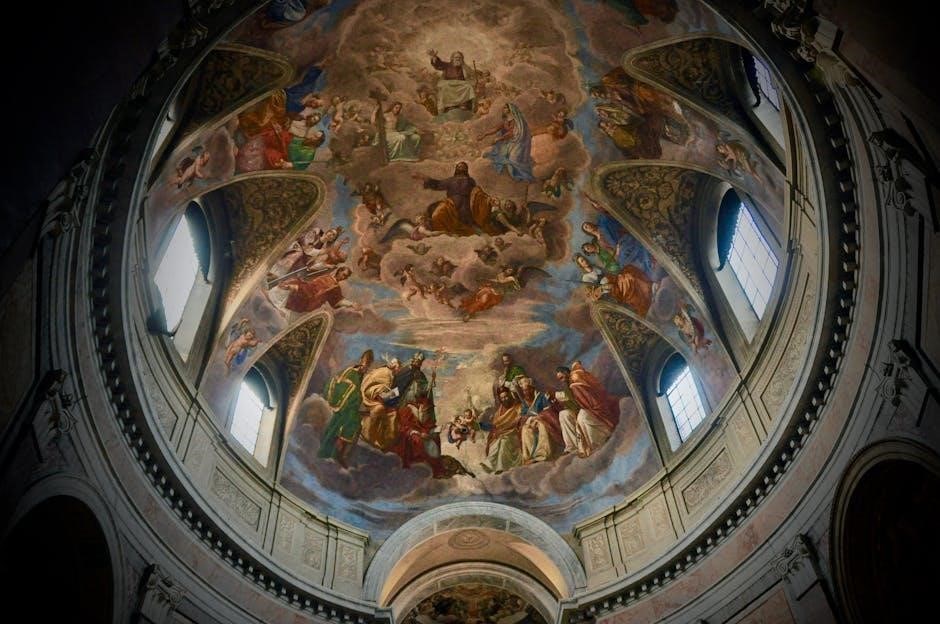
Early Christianity and the Sabbath Tradition
Early Christians initially observed the Sabbath on Saturday, following Jewish tradition, but gradually shifted focus to Sunday, honoring the Resurrection. This transition reflected evolving practices.
The Sabbath in the Ten Commandments and Early Christian Practices
The Sabbath, as outlined in the Ten Commandments, was a sacred institution observed on the seventh day, Saturday, emphasizing rest and worship. Early Christians, largely Jewish converts, initially followed this tradition, honoring the Sabbath as a day of rest and religious observance. However, as Christianity evolved, the focus began to shift toward Sunday, the day of Jesus’ Resurrection, gradually becoming the “Lord’s Day.” This transition reflected the blending of Jewish and Gentile practices, laying the groundwork for the eventual change in the day of worship. The Sabbath’s roots in the Ten Commandments remained central to its significance.
The Influence of the Roman Empire on the Change
The Roman Empire’s influence significantly contributed to the shift from Saturday to Sunday worship; Emperor Constantine, a key figure, issued the Edict of Milan in 313 AD, legalizing Christianity and fostering its growth. Sunday, already a day of pagan sun worship, became aligned with Christian observance of Jesus’ Resurrection. The Empire’s support for Sunday as a day of rest facilitated the Catholic Church’s adoption of this practice. This convergence of political and religious interests helped solidify Sunday as the primary day of Christian worship, further distancing it from the Jewish Sabbath tradition.
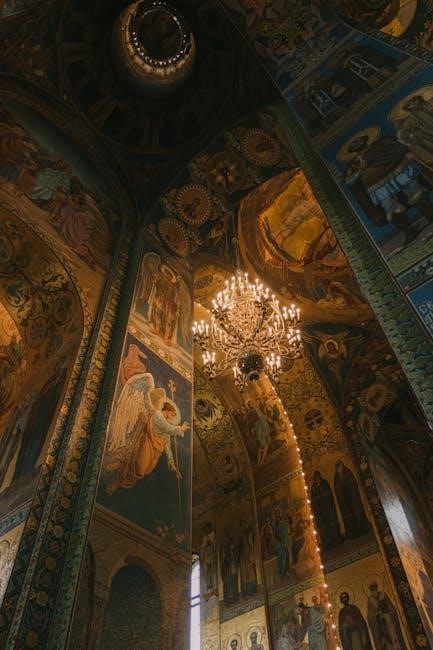
Theological Justification for the Change
The Catholic Church bases the shift from Saturday to Sunday on the Resurrection of Jesus, designating Sunday as the “Lord’s Day.” This theological rationale, supported by apostolic tradition and scriptural references, emphasizes the day of Christ’s triumph over death as the new day of worship, reflecting the Church’s divine authority to adapt sacred traditions.
The Resurrection of Jesus and the “Lord’s Day” Concept
The Resurrection of Jesus is central to the Catholic Church’s theological justification for changing the Sabbath to Sunday. The New Testament recounts Jesus rising on the first day of the week, which became known as the “Lord’s Day.” Early Christian communities, following the apostles’ lead, gathered on Sundays to celebrate the Eucharist and honor the Resurrection. This shift emphasized the triumph of Christ over death, marking a new era for worship. The Church’s authority to adapt the Sabbath was grounded in this divine event and apostolic tradition, reinforcing Sunday as a day of renewal and eternal life through Christ.
Scriptural and Apostolic Tradition Supporting Sunday Worship
The Catholic Church bases its support for Sunday worship on both Scripture and apostolic tradition. The New Testament highlights Jesus’ Resurrection on the first day of the week, establishing Sunday as the “Lord’s Day.” Acts 20:7 and John 20:1,19,26 describe early Christians gathering on Sundays. The Church asserts apostolic authority to sanctify Sunday, emphasizing its connection to the Resurrection and the outpouring of the Holy Spirit. This shift reflects the Church’s divine authority to adapt worship practices, aligning with Christ’s triumph and the transcendence of the seventh-day Sabbath. Sunday worship embodies the renewal and eternal life offered through Jesus’ resurrection.
Official Catholic Church Statements on the Sabbath Change
The Catholic Church admits changing the Sabbath, citing divine authority. The Catholic Mirror (1893) and The Catholic Record (1923) confirm this change, emphasizing the Church’s role in shifting worship from Saturday to Sunday.
Quotes from Catholic Documents and Catechisms
Official Catholic documents explicitly admit the Church’s role in changing the Sabbath. The Catholic Mirror (1893) states, “By virtue of her divine mission, the Catholic Church changed the day from Saturday to Sunday.” Similarly, The Catholic Record (1923) affirms, “The holy Catholic Church changed the Sabbath to Sunday.” The Convert’s Catechism by Peter Geiermann further clarifies, “The Bible teaches Saturday, but the Church changed it to Sunday.” These quotes underscore the Church’s authority in altering the day of worship, emphasizing its divine mandate to adapt religious practices while maintaining theological consistency with apostolic traditions.
The Catholic Record and Other Historical Publications
The Catholic Record (September 1, 1923) openly states, “The holy Catholic Church changed the Sabbath to Sunday.” Similarly, The Catholic Mirror (September 23, 1893) asserts, “By virtue of her divine mission, the Catholic Church changed the day from Saturday to Sunday.” These historical publications provide clear evidence of the Church’s role in altering the day of worship. They emphasize the Church’s authority, derived from its founder, to modify divine commandments. Such documents serve as primary sources, confirming the Catholic Church’s direct responsibility for shifting the Sabbath observance, aligning it with the “Lord’s Day” tradition rooted in apostolic practices and the Resurrection of Jesus.
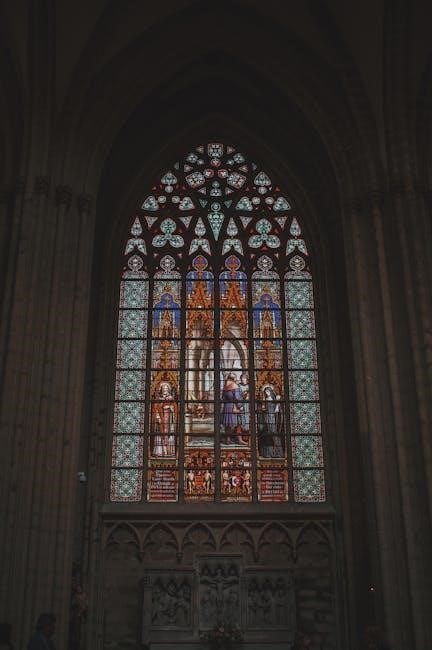
Controversy and Reactions to the Change
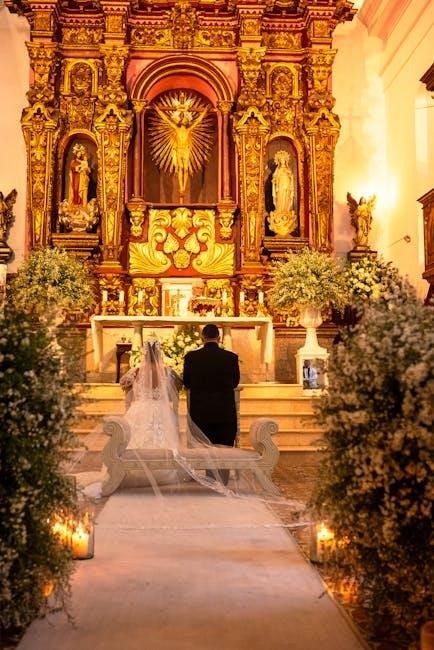
The Catholic Church’s shift of the Sabbath to Sunday sparked significant debate. While some accepted the change as a theological evolution, others, particularly in Protestant circles, criticized it as a deviation from biblical teachings. Historical records show that early Christians initially observed the Sabbath on Saturday, aligning with Jewish traditions. However, as Christianity spread among Gentiles, the influence of Roman culture and Emperor Constantine’s endorsement of Sunday as a day of worship contributed to the transition. Theological reasoning, such as the Resurrection of Jesus on a Sunday, further solidified this change. This shift not only affected religious practices but also had broader cultural implications, shaping societal norms and distinguishing Christian practices from Jewish ones. The Catholic Church’s assertion of authority in making this change is documented in official publications like the Catholic Catechism and historical records, which provide insights into the rationale and repercussions of this decision.
Protestant Perspectives on the Sabbath Change
Protestant perspectives on the Sabbath change often emphasize adherence to biblical teachings. Many Protestants argue that the Sabbath should remain on Saturday, as commanded in the Ten Commandments (Exodus 20:8-11). They criticize the Catholic Church’s decision to shift worship to Sunday, viewing it as a deviation from Scripture. Some Protestant leaders and writings question the Church’s authority to alter divine commandments, asserting that only God can change such ordinances. This debate reflects broader theological differences, with Protestants generally advocating for Sola Scriptura (Scripture alone) as the ultimate authority in matters of faith and practice.
Modern Debates and Implications for Christian Worship
Modern debates surrounding the Sabbath shift focus on its implications for contemporary Christian worship. Some argue that the change from Saturday to Sunday reflects cultural and historical contexts rather than theological necessity. Others emphasize the importance of maintaining traditional practices, while some advocate for a more flexible approach to worship days. These discussions highlight the ongoing relevance of the Sabbath in Christian identity and practice. The debate also raises questions about authority in religious traditions, whether it lies with Scripture, Church leadership, or cultural adaptation, influencing how worship is observed in diverse Christian communities today.
The Catholic Church’s admission of altering the Sabbath highlights its significant role in shaping Christian worship. This change, rooted in theological and historical contexts, has profound and enduring implications for religious practices, reflecting the Church’s authority and influence in adapting traditions to its doctrinal framework.
The Significance of the Change in Christian History
The Catholic Church’s shift from Saturday to Sunday as the day of worship holds profound historical significance. It marks a pivotal moment in Christian tradition, separating it from Jewish practices and establishing Sunday as the “Lord’s Day” in honor of Jesus’ resurrection. This change, openly acknowledged by the Church, demonstrates its authority in shaping religious customs and highlights the adaptation of divine commandments to evolving theological frameworks. The transition has had lasting implications, influencing Protestant traditions and sparking ongoing debates about worship practices, making it a cornerstone of Christian historical development.
The Ongoing Impact of the Sabbath Controversy
The change of the Sabbath from Saturday to Sunday continues to spark debates among Christians. The Catholic Church’s assertion of authority in altering the day of worship has led to theological disputes, particularly with Protestant denominations. This controversy highlights tensions between tradition and biblical literalism, influencing modern worship practices. The shift to Sunday has become a defining feature of Catholic and Protestant traditions, shaping ecumenical relations and individual beliefs. The Sabbath controversy remains a pivotal issue, reflecting broader discussions on religious authority, scriptural interpretation, and the evolution of Christian practices, ensuring its relevance in contemporary religious discourse.